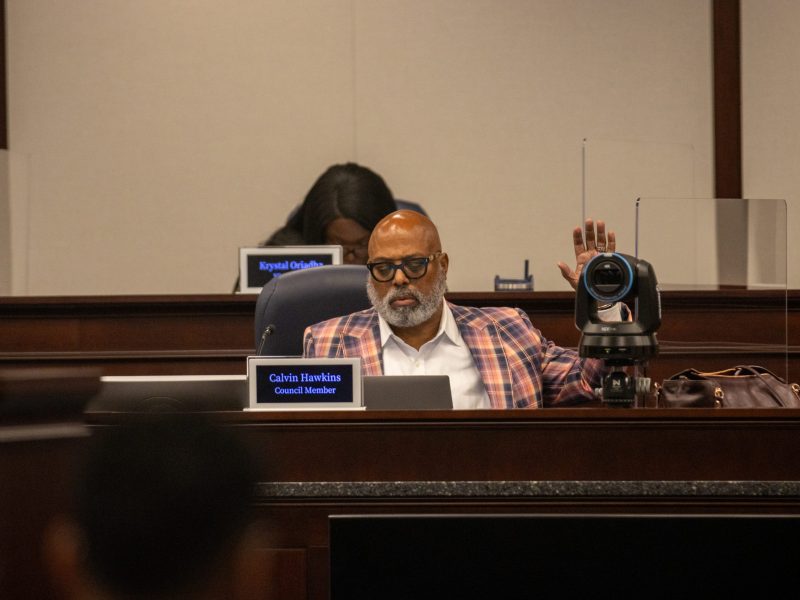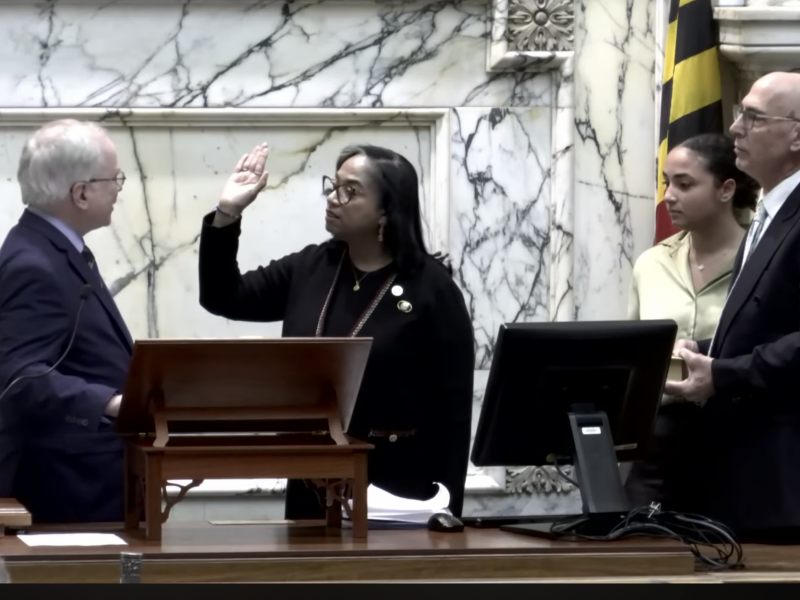The Prince George’s County Council held public hearings on Tuesday for an ordinance to create project labor agreements for certain upcoming construction projects by the county’s public works and transportation department.
The proposed bill is designed to strengthen the county’s construction industry by creating entry-level positions for residents and incentivizing those in the industry with project labor agreements.
Proponents of project labor agreements cite their importance in promoting the formation of labor unions in construction projects and providing employer-sponsored health care and retirement plans.
District 8 council member and bill sponsor Edward Burroughs III highlighted the effectiveness of project labor agreements in addressing unemployment and alluded to an executive order signed by former President Barack Obama that promoted their use for federal construction projects.
“Project labor agreements have a proven track record of fostering positive benefits, ensuring compliance with workplace safety and health standards, as well as wage protection and equal opportunity,” Burroughs said. “This is a pillar of the Democratic Party.”
As a pilot program, CB-004 would only affect projects falling under the “Curb and Road Rehabilitation 2” designation by the county’s public works and transportation department.
The project category, which includes installing new sidewalks and overseeing street and curb safety, is one of the most funded projects in the county, receiving more than $32 million in 2023.
The current bill’s limited scope is to help understand the fiscal impact of the project labor agreements for future county projects and has the support of Prince George’s County Executive Angela Alsobrooks, according to County Council Liaison Terry Bell.
[PGCPS educators grapple with ChatGPT use in classrooms]
Supporters emphasize the plan would ensure numerous benefits for unionized employees.
Steve Lanning, the business manager for the labor union LiUNA! Local 11 praised the bill as necessary for the growth of the construction industry in the county and critical to addressing unemployment.
“A pilot [project labor agreement] on road work will use taxpayer dollars to create quality entry-level construction jobs for residents who need them,” Lanning said. “These jobs with a low barrier of entry that come with health insurance and pension — that’s a pathway to the middle class.”
LiUNA! Local 710 business agent Raymond Diaz, echoed Lanning’s sentiments. Diaz believes that the bill will not only strengthen the county’s workforce, but also spur growth for minority-owned businesses in the county.
“It is also a signal that elected officials in Prince George’s County recognize the need to prioritize the local workforce. At the same time, it promotes local and minority businesses,” Diaz said.
While the move is largely praised by union activists, others say that it will have an adverse effect on small businesses in the county due to the increased spending to meet project labor agreement demands.
At-large council member Mel Franklin alluded to the enforcement of project-labor agreements for two county projects in 2011 when the county council passed CB-16, a similar bill to CB-004.
[Prince George’s County officials say Blue Line Corridor is about community investment, not football]
“It was an absolute failure,” Franklin said.
The projects, the Laurel Library and Brandywine Fire Station, had to pull their project labor agreements due to an insufficient workforce and overspending of the budget, Franklin said.
The bill has also concerned construction companies in the county. Nelson Nazario, who works for NZI Construction in Beltsville, said the additional cost for such projects will create unintended consequences for the bill.
“We believe that the bill will not achieve the desired result, but will, in fact, take away jobs from residents in Prince George’s County,” Nazario said. “We all know that union work ends up adding additional costs to projects.”
Despite Franklin’s and Nazario’s concerns, the bill is expected to pass with six sponsors and has the overwhelming support of the council’s liberal majority.
Burroughs downplayed concerns about the measure by detailing how the county will continue to prioritize union rights and address fundamental unemployment issues within the county.
“The council has a responsibility to use its legislative powers to guarantee that a significant share of taxpayer dollars spent on local construction projects are re-invested in our communities,” Burroughs said.



